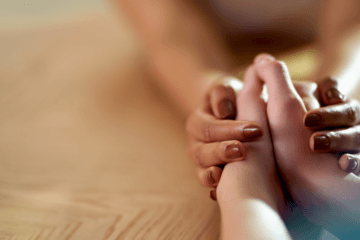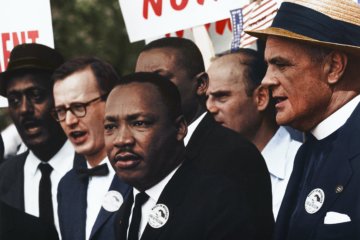In every situation, whoever is asking the questions is in control of the situation.
As an executive coach, I ask my clients, are you asking the wrong questions?
You can get the wrong answer from a negative question…”How stupid can you be?”
You can get a wrong answer from a positive question…”Are you sure you’re making the right choice?”
And, even when you get the right answer, it’s not always the solution.
Take drinking and driving. If you confront your friends with either of these questions, they’ll probably get defensive and get behind the wheel.
What if you were to say, “Is there another way you can get home tonight?”
That leaves the door open for solutions.
But you can’t get the right answers from the wrong questions…and even when we do get the right answers, they’re not always the solution.
If we are going to live in the present, and make the most of it, we must pay attention to the questions we ask.
Why & Who versus What & How Questions
Right answers are critical, but right answers don’t necessarily solve the problem. I see this all the time during my executive coaching sessions.
Why and Who questions are emotionally charged compared to What and How questions because they’re historical in nature. They take us back in time, “Why did this happen?”
“Why must you drive drunk?”
“Who screwed up?”
They plead for reasons, but all they do is breed excuses. We all despise excuses and get annoyed when others dish them on us, but the fault isn’t theirs…it’s ours for asking a Why or Who question.
Consider asking a friend, “How would you like to get home tonight? I think you shouldn’t be driving.” Or, “What can I do to help you get home? Would you like a ride?”
These are questions that hold a solution.
The art of asking the right question
I practice this all the time as an executive coach.
Instead of asking people to live in the past, let’s ask future-oriented questions.
When it comes to your business, these questions might look like, “How can we fix this?” or “What can we do right now to stop the decline and turn this around?”
Notice that these inquiries invite people to live in the present, encouraging positive statements about how things can be done better in the future.
Notice that these questions are not about how to be a different person but about becoming more of who and what we already are – right now.
We’re asking our colleagues to live in the present.
Why live in the present?
I’m not saying that we shouldn’t look back on memories with fondness or look back on hard times and remember how we weathered them…
The past is sometimes a wonderful place to visit, but it’s a debilitating place to live.
Driving forward while staring into the rearview mirror is unsafe, irresponsible and distracts us from focusing on the present road conditions and direction in which we are heading. So why should we live our lives this way and diminish from the here-and-now?
Living in the past dilutes our energy, makes us tired, and unable to stay productive at work. It triggers regret, pain and often leads to chronic stress, depression, insomnia, obesity, anorexia…
People living in the past hold on to grudges, which in reality is like you drinking poison and expecting the other person to die. Absurd!
Having said that, living in the future is equally debilitating. It triggers anxiety, fear, and worse – the ambiguous ‘must-be-better-than-now’ mindset, which is the root cause of procrastination.
Finding the balance between present, past, and future
I am as guilty as anyone, as there was a time in my life where my sole purpose was to be somewhere else. I love my role as a keynote speaker and life coach now, but I wasn’t always so settled in this life of significance…
In the seventh grade, I remember thinking, ‘When I’m finally a ninth-grader, I will be somebody!’
As a senior in high school thinking, ‘I can’t wait to get out of here. Then I’ll pull my head out and focus on college, rationalizing, ‘When I graduate and get my dream job, I’ll finally feel good about myself.’
And then, ‘If I could just get married, I’ll finally be happy and feel complete.’
I wasn’t asking myself how I could become a better person in the present, what I could do to achieve my dreams…I was asking myself the wrong questions.
I was asking what or who would make me happy.
Here’s a tip:
If we are not happy single, we will never be happy married. If we are not the best seventh-grader we can be, we might not even make it to the eighth and ninth grades!
When we live for the future, we build grand expectations. We put years of happiness into a single moment, and, in doing so, we set ourselves up for inevitable disappointment.
Bottom line. Living in the past is ridiculous because there is nothing we can do to change it – and our future depends on what we do in the present.
Where are you right now?
The critical question, which is always the ‘right question’ is: where are you right now?
It’s like ordering an Uber that requires that you enter your current location. If you lie about where you are, the directions won’t work!
The present is called the ‘present’ because it’s a precious gift we cannot afford to waste!
Today, you have never been this old before. And today, you will never be this young again.
So right now, and every ‘right now’ matters…which means you can’t always control what happens, but you can always control what happens next. The power to become significant is found in living in the present and asking the right questions so you can live in here-and-now.
And keep on keeping on because, in two more days, tomorrow is yesterday!
Would you like to learn how to live in the present and become your best self…live a life of significance? Contact me, and we’ll talk.
Enjoyed this article? Here are three more to help you live a life of significance:
Are You Prepared for the Whole Truth? You Should Be
Loving Truly Is Intertwined With Being Needed, Are You Ready?
3 Actions To Find Higher Ground Instead Of Finding ‘Normal’


